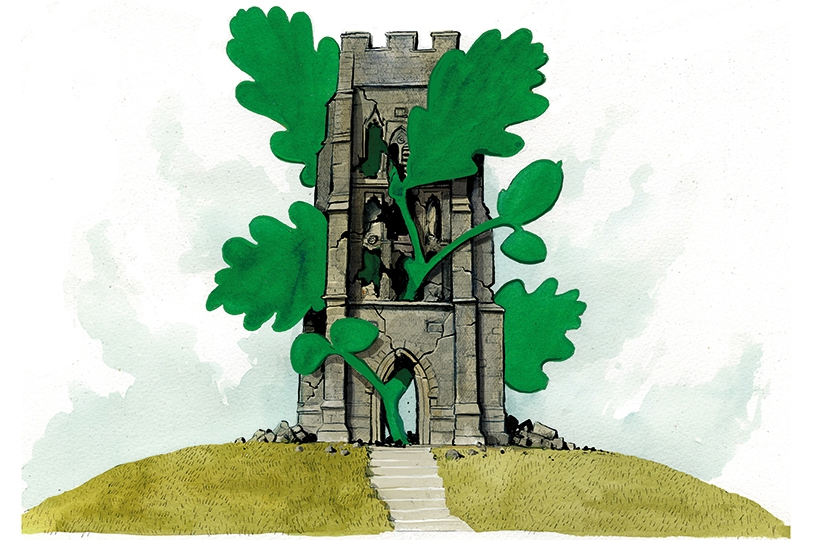As someone who worked full time in the office for 24 years and has now worked full time from home for nearly 21 – always, in both periods, on the staff – I can see both sides of the argument. But I do think the sequence matters. I would have had no idea how to work for my employers if I had begun at home. Indeed, the entire concept of a newspaper then – and even, to a large extent, now – depends on its collective capacity to find, write and edit news fast. Much of that stimulus comes from being in the same building. On Monday, Andy Jassy, the CEO of Amazon, wrote a longish letter to all employees about work methods. He praised his company’s ‘culture’, but asked whether it is best set up to ‘invent, collaborate, and be connected enough to each other’. He thinks it isn’t, partly because people are not in the office enough. Amazon will now revert to pre-Covid arrangements, he announced, barring ‘extenuating circumstances’. They will be there five days a week. Amazon will also reinstate ‘assigned desk arrangements’ rather than hot desking. Interesting that this most modern of big businesses feels this way. Also interesting that one of the least modern of our major institutions, the British civil service, abetted by the new government, does not. Rachel Reeves could save billions if Whitehall now wrote to its hundreds of thousands of WFH employees to say that unless they return to the office by Christmas, it’s goodbye.
A friend recently visited Hughenden, Disraeli’s house, now owned by the National Trust (NT). The first thing he saw were two introductory NT placards opposite the front door. One, headlined ‘Crafting a personal myth: Benjamin Disraeli’, tells almost nothing about his political career, except that he was ‘a UK prime minister’ (no dates, no century given). It explains that he was born Jewish but was later baptised. Both placards concentrate on his ‘mythmaking’ which, they say, allowed the Tories to ‘present him as a member of the establishment and a serious political thinker rather than an opportunistic dandy’. ‘Like Disraeli,’ burbles the second placard, ‘we curate our own stories in social media platforms.’ Gosh, I did not know that Dizzy tweeted. ‘Let’s reflect on Disraeli’s legacy,’ adds the notice. ‘Are we all authors of our own myths?’ The Disraeli image is indeed interesting, but shouldn’t NT members first be told basic facts about him, for example that this ‘opportunistic dandy’ invented ‘One Nation’ and increased the franchise by 88 per cent?
Cultural bodies like the National Trust love to deploy that word ‘stories’. We all have ‘stories’, they say. Why this word? I think because it provides an excuse for inaccuracy – rather like the phrase ‘my truth’ – and because it allows a story’s ‘curators’ to riff on the historical figures with whose legacy they are charged, rather than studying them seriously.
The late Auberon Waugh wasn’t madly keen on Yorkshiremen. He once wrote, I think in these pages, that Peter Sutcliffe, the Yorkshire Ripper, should be referred to only as ‘the Yorkshire’, since that would be enough to identify him. A disgraceful thought, of course, which would nowadays provoke cancellation. I would not dream of suggesting any such thing about Welshmen. But we are invited by a consultant psychiatrist, in a report for Westminster magistrates’ court, to consider that Huw Edwards suffered ‘cognitive dissonance’ because of ‘the particular cultural milieu of South Wales [his childhood home]’ and low self-esteem caused by ‘not getting into Oxford and going to Cardiff instead’. It is, I imagine (I never dared attempt it), very sad not to get into Oxford, and possibly, though again I do not know, unpleasant to go to Cardiff instead. But 99.9999999 per cent of the human race has to put up with not being at Oxford. The experience need not lead even Welshmen to procure child pornography, nor deserve only a suspended sentence if they do.
Very rarely indeed do letters written to newspapers by a clutch of public figures achieve much, but I am assured of a recent counter-example. In the Times of 3 July, 48 such, Catholics and non-Catholics, signed a letter begging the Pope not to banish the Latin [Tridentine] Mass from almost every Catholic church. ‘The traditional liturgy is a “cathedral” of text and gesture,’ we wrote, ‘developing as those venerable buildings did over many centuries.’ Signatories included Ian Bostridge, Nina Campbell, Lady Antonia Fraser, Dame Jane Glover, Michael Gove, Tom Holland, Tristram Hunt, Lord Lloyd-Webber, Dame Felicity Lott, Sir James MacMillan, our own dear Fraser Nelson, Sir Andras Schiff, Rory Stewart and Dame Kiri Te Kanawa. The letter sought to ward off a ban which Francis was expected to promulgate that month. He did not promulgate it. Rome has gone quiet. The British media almost ignored the story, but it was big worldwide. On Monday night, many of us gathered in Corpus Christi, Maiden Lane, for a High Mass of the Holy Cross ‘offered for the good estate of [us] petitioners’. We might have added to the liturgy the words Deus EST, which is the nearest Latin to ‘There IS a God’, but I suppose those present knew that already.
A footnote to Sir Keir Starmer’s removal of Lady Thatcher’s portrait from the Downing Street study named after her. I realised I did not know what picture she contemplated when the study was hers. Thanks to Wendy Baron, the outstanding retired head of the Government Art Collection, I learn that it was a touching Newlyn School painting by Frank Bramley. Called ‘Weaving a Chain of Grief’, it depicts a young woman doing just that. Beyond, through a lattice, is a view of the sea, suggesting she mourns a drowned lover. Mrs Thatcher adored the picture, but for some reason never knew its title. Perhaps Sir Keir, who says he prefers landscape to portrait, should hang it again, and enjoy its melancholy but soothing presence.








Comments